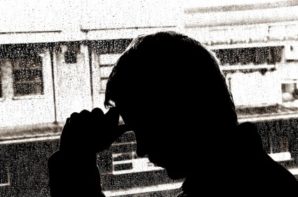
Medical experts agree that depression magnifies pain making life more unbearable for those living with this condition. In actual sense depression and chronic pain are inseparable hence psychotherapy as well as medication that relieve depression is also likely to assist with chronic pain.
Chronic pain is referred to as pain that continues for an extended period of time apart from the original injury or problem.It is now emerging that as many as fifty percent of people suffering from chronic pain also experience clinical depression. Clinical depression goes further than normal feelings of sadness or low moods. Usually this is a psychological state that leads to feelings of hopelessness, lack of appetite and slowed response time.The body has its unique way of responding to chronic pain such as mood disorders, muscle pain, low energy and abnormal brain hormone. Chronic pain heightens your body’s sensitivity to pain as your nuerochemical changes. Soon the individual suffering from chronic pain also begins to experience pain in other body parts that normally do not hurt.
Chronic pain tends to interrupt sleep since individuals who suffer from it wake up frequently at night. This result in fatigue during the daytime coupled with low productivity. When fatigue is coupled with the persistent pain the end result is added irritation which makes it difficult to cope with other people. A patient who experiences chronic pain but also has children or full time jobs to deal with begins to perceive life as a real challenge. Soon feelings of being overwhelmed begin to creep in giving way to depression.
Suicidal tendencies sometimes occur especially when the patient feels that there is no light at the end of the tunnel.Pain has a way of provoking emotional reactions from every human being. When you experience pain you are also likely to be irritable, anxious and agitated. It is important to understand that these are normal feelings for people who are hurting. If the pain begins to subside stressful responses also decreases. The problem with chronic pain is that it does not go away that fast and hence the person feels constantly agitated and stressed. With time the constant stress results in different emotional issues that are closely associated with depression. Some of the problems closely associated with depression and chronic pain includes:
Anger
Confusion
Altered moods
Chronic anxiety
Low self-esteem
Fatigue
Financial difficulties
Isolation from loved ones
Sleep disturbances
Irritability
Low libido
Fatigue
If you are experiencing depression and chronic pain then it is important to realize that you are not alone. Depression is a common problem that faces people who have been inflicted by chronic pain .This combination often leads to more complications that make it hard for doctors to treat and manage these conditions.It is quite common to have doctors overlook depression in people suffering from chronic pain. Usually this condition goes undiagnosed and untreated for quite a while since the doctor is likely to be focused on pain symptoms. When loss of appetite, low energy levels and sleep disturbances are added to the equation the pain becomes unbearable.
Depression and chronic pain are usually so intertwined that the two become quite difficult to separate. It is common for people who are depressed to have chronic pain or vice versa. Medics often find it hard to figure out where one ends and where the other begins. What is even more bewildering for healthcare experts is figuring out what to treat before the other.
Pain usually activates areas of your brain that reacts to stress; this is the body’s coping mechanism for dealing with acute pain. When the brain gets the signal it responds by mobilizing the body to go into overdrive in a flight or fight mode. If the pain subsides or is reduced the signals cease and the body functions go back to normal. The only difference with chronic pain is that these signals are not turned off hence the body remains in the flight or fight mode at all times.The body is not designed to stay on high alert for long and soon the effects of the stress wears the body down making the person vulnerable to depression.
Doctors often prescribe antidepressants for people who experience chronic pain even though they do not have low moods. This may seem strange but it is based on scientific evidence that has been accumulated since 1960 linking depression and chronic pain together. Antidepressants have chemical properties that cause changes in the brain thus altering how pain is perceived.

